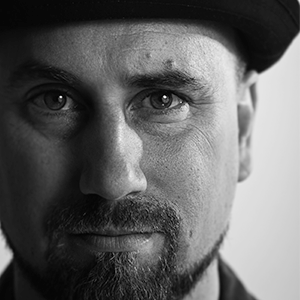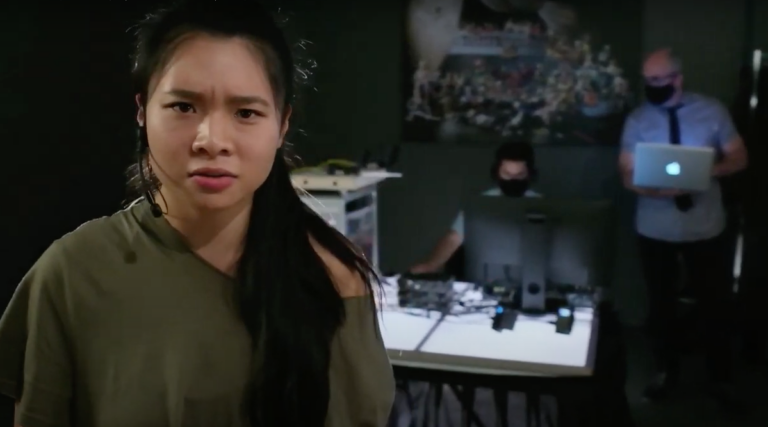How Prince Made Me A Better Playwright
Most people think Prince was a perfectionist. This is not entirely accurate. I would consider him more of a “precisionist.” He was meticulous in the details, in the sounds, and in the grooves. He wrote songs that felt simple but were layered and complex, at once subtle and bold. But when mistakes or accidents happened in the studio during a recording session, he was open to those possibilities. If he liked what he heard, he would keep it and move on; there were other things to do. Don’t just take my word for it: Susan Rogers, one of Prince’s long-standing engineers, said “He wouldn’t have had the output if he was a perfectionist… It just poured out of him, he didn’t have time to be a perfectionist.” Prince didn’t know this instinctually, however; he learned it through experience by what, in his mind, was a failure: his first album.
For You, Prince’s 1978 debut on Warner Brothers records, was written, performed, engineered, and produced by the 19-year-old. He worked hard to make a perfect record, to get everything just right, with layer upon layer of overdubs. What he ended up doing was stripping it of any life, of spontaneity, of anything resembling the new sounds he knew were inside of him. He made a slick, traditional R&B record, which was not what he wanted to do. He squeezed it too hard, trying to prove himself, to leave no doubt about what he was capable of—even though he probably felt like he was compromising his instincts. The fallout from that experience was that by the time of his third album, 1980’s Dirty Mind, he was essentially handing in demos from his home studio in Minneapolis and not the super professional studios of Los Angeles. Eventually, the pendulum balanced itself and a hybrid of these two extremes emerged.
What does any of that have to do with playwriting? A lot. I have always struggled with dramaturgy. Mostly because I have trust issues, but also because I’ve always felt we ended up squeezing the plays too tightly, analyzing every detail to the point where we lost sight/sound of the ‘tone’ of the play. We end up paying less attention to emotional intentions as opposed to the literary ones. When I bring this up in theatrical circles, there’s usually unanimous push-back. “Scripts need to be rigorously developed,” they argue; “workshopping always has value,” they say; countless drafts are required to try and ‘fix’ what they feel is wrong with the play instead of revelling in the potential madness of it. This process can take years. I do agree: some projects do need this kind of attention, depending on the writer’s individual process and the emotional availability for the patience and focus required. But I truly believe some other plays need to be birthed, beaten, and presented—bruises and all. Either method can create something magical, or something utterly forgettable.
Some plays are symphonies, some are pop songs, and we can’t label one as better than the other. Now I don’t believe I am on any level close to Prince as far as pure talent is concerned, but I’ve borrowed some of his processes: make work, make a lot of work, get it to where you like it, and move on. You never know which single piece of work will be embraced by anyone else but you, so why bother trying to obsessively create a diamond when coal also has value?
Sometimes when I listen to Prince, I don’t feel the track. Not every song resonates. While I’m listening, I don’t know if the track was assembled over several days in the studio (which was a long time for him); whether it was recorded alone or with certain band members; if it was a song he wrote for himself or one of his side projects; if it went through multiple mixes, or if the track was hammered out, recorded, and mixed in one single session—start to finish—in one night. Which one is the hit? There’s no scientific way to predict this.
Record companies (and perhaps theatre companies) try to be all-knowing in their programming and marketing, but they’re not always right. “Little Red Corvette” was not the first single off of 1999, and my favourite songs on that album are deep cuts on side 4. Prince’s record company hated “Kiss,” and didn’t want to release it. A recent article by Okayplayer claims that “777-9311” by The Time is Prince’s best song—a song he didn’t even keep for himself. “Nothing Compares to You” was originally written and recorded for another Prince side project, The Family, in 1985, and wasn’t even released as a single. Then Sinead O’Connor came along in 1990 and it becomes a smash number-one hit worldwide. There’s a hilarious/ridiculous 15-minute track on Crystal Ball called “Cloreen Bacon Skin,” which is basically Prince and Morris Day jamming and messing around. Why was it released? It was never going to be more than a curiosity (the iconic “Jungle Love” was recorded the previous day). Could Prince, or the record company, have known the impact of each track? No. That’s why I write and pitch the way I do. No one can claim to know what’s going to work or not work, so why be careful about it?
When I started writing, I listened too much to other voices telling me how to ‘improve’ my scripts. This isn’t to say that I didn’t learn from mentors and teachers—but if you bend too far away from your vision, you lose your voice. You have to listen, yes, but all notes need to be filtered. I spent too many years trying to impress, trying to be strategic and make the ‘right’ moves. It didn’t work because the material suffered. They might have been structurally proper and followed solid narrative form, but they had no life.
I write three different styles of plays. The first is more traditional, research-heavy, historical plays about artists and revolutionaries. These take years and go through rigorous re-writes and dramaturgy. The second style is multi/interdisciplinary pieces for my performance collective Dancing Monkey Laboratories. They are more conceptual, with heavy layers of dance and music, and with development usually happening in the studio, with bodies in space, with my collaborators greatly influencing the ‘finished’ product. The third style is what I call Rock’n’Roll theatre: one-acts between 20 and 60 minutes, meta-theatrical and designed to be more in-line with the visual arts and musical concept of ‘emotionism,’ meant to create a visceral reaction rather than offer an Aristotelian-inspired narrative. Whether something was written in 6 days, 6 weeks or 6 years, is there any way to know which will live on? No.
Prince was singular in his vision, incredibly driven, a force of nature, and was supremely gifted. But without being championed—first by studio owner Chris Moon who saw something special and offered him, at 16 years old, free studio time and then his first manager Owen Hunsey, who never tried to change him, but fought for him—would things have played out as they have? Nothing, not even supreme talent, is inevitable.
Prince released 38 albums, officially, countless bootlegs, B-sides, songs for other artists, and everything in the mythical vault. But for me, most impressively, he released four albums in 2014-2015. These range from electro-soul to Hard Rock with an all-female power trio. The tracks on these records are alive, current, and contemporary—not the mid-tempo, paint-by-numbers wankery most aging rock stars release. He managed to avoid this because it was never how an industry perceived or valued him that mattered; it was what the music asked for, it was the things he still needed to say, actively reacting to the world around him—like the song “Baltimore,” written after the 2015 death of Freddy Gray in police custody.
In music and theatre, like any craft, you need to learn the basics: structure, shape, some history, a few rules. Then you can ignore it all. Prince created his own sound—the Minneapolis Sound, that was later taken up by Jimmy Jam and Terry Lewis from The Time who then went on the produce Janet Jackson, New Edition, Boyz II Men, and so many more. This sound and his many side-projects changed the course of popular music. When Prince started, no one sounded like him. He took influences from everywhere and anywhere, from Sly Stone to Joni Mitchell to Gary Numan, regardless of social or historical context and layered it into his own work. He stayed true to his vision unapologetically. Was it always successful? Hell no. Did he back-track when that happened? Fuck no. Because he understood: one creative decision is not the end-all and be-all. There will be more material, so you keep going.
I try to emulate this in my playwriting. Taking inspiration (tonally and structurally) from everywhere:—music, film, sitcoms, design, acting, dance, architecture, philosophy, fine/street art—and then filter bits and pieces in to the work, layering different influences into different projects. The root of the influence is meaningless to the work itself and to the audience (that’s for scholars down the road) but the impact of the material on an audience is what matters. Does it always work? Hell no. But there’s always another story to tell.
Prince himself admitted that the mixes on some of his biggest hits were terrible. But if he took more time to make them ‘perfect,’ would they still be hits? I feel this way after most of my productions, and with most of my scripts. But if I spent months on more drafts or another remount, are they getting better or just different? And what about the growing backlog of new ideas and inspiration that is constantly demanding attention? Maybe one of those will be the hit. One of my favourite quotes is by ‘Pataphysician and writer Alfred Jarry, who said “We shall not have succeeded in demolishing everything unless we demolish the ruins as well. But the only way I can see of doing that is to use them to put up a lot of fine, well-designed buildings.” Prince understood this instinctively. He respected what came before but wasn’t reverent towards it. He wasn’t going to let it define him, or listen to those voices that wanted to change him. That’s what Prince taught me about playwriting: do your thing, make your own creative choices, and then fight for them.











Comments